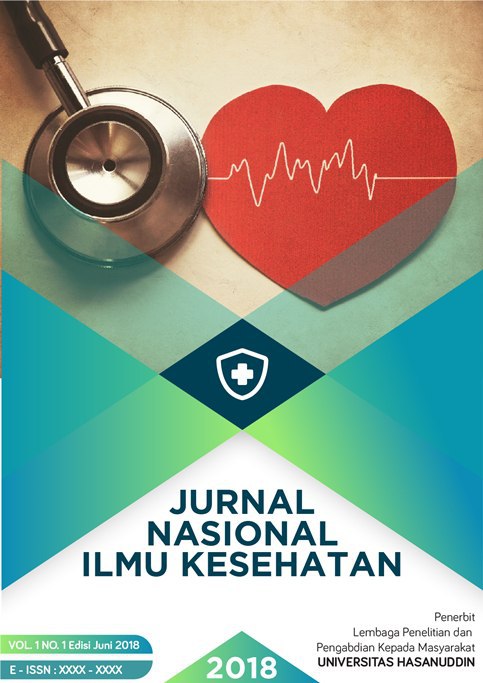The Risk Factors for Treatment of Multidrug Resistance Tuberculosis (MDR-TB) Patients in Labuang Baji General Hospital Makassar in 2017
Abstract
Multidrug-Resistance (MDR) is a stage or condition in which Micobacterium tuberculosis becomes minimally resistant to rifampicin administration and also INH (insonicotinylhydrazine) with or without other OAT (Anti-TB drugs). The study is aimed at determining the description of risk factors for treatment of Multidrug Resistance Tuberculosis (MDR-TB) patientsin Labuang BajiGeneral Hospital Makassarin2017.The studyis quantitative research using observational approach with descriptive method, with more than 50 peopleas population and using totalsampling technique.Univariate analysis is used in analyzing the collected data.
The results of this study are the highest sex is male as 28 respondents (56%). The highest age group is 45-53 years as many as 10 respondents (20%). The highestlevel ofeducation is high school graduation as much as 16 respondents (32%). The highest job status is not working as many as 40 respondents (80%). Based on the origin of referral,60% is from Public Health Center, 20% from Hospital, 45% referenced from Hospital ccme from BBKPM. 100% of the drug needs are always met, 100% get information about MDR-TB, 100% feel the side effects, 49 respondents (98%) feel the side effects since the beginning of treatment,and 1 respondent (2%) just feel the side effects at 6 months treatment , 49 respondents (98%) felt side effects of nausea and dizziness,and 1 respondent (2%) hashearing loss, 100% hasPMO. For the next research, itshould conductresearch by looking at the relationship between variables, in order to observethe variables that become MDR-TB risk factors.
Keywords : MDR-TB, Side Effects, PMO

